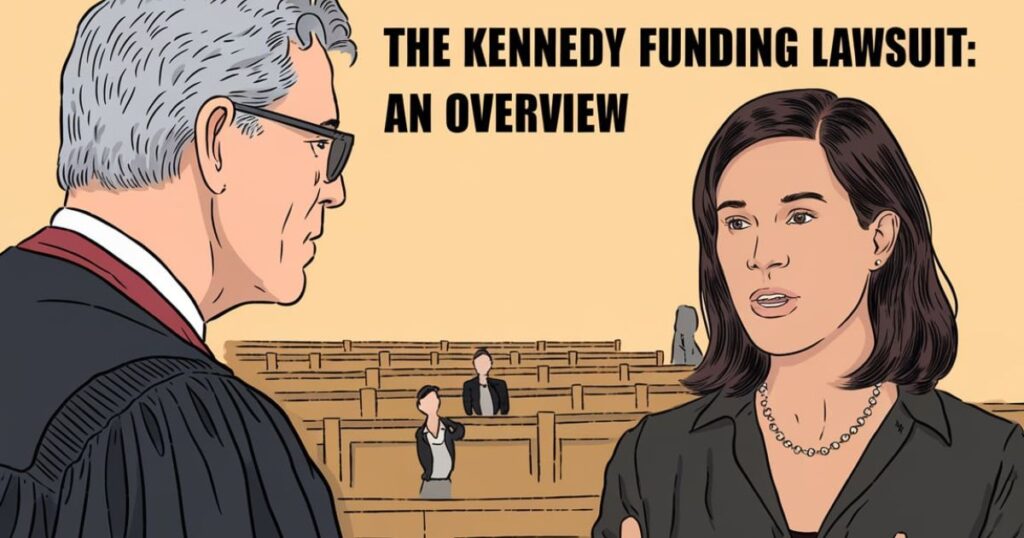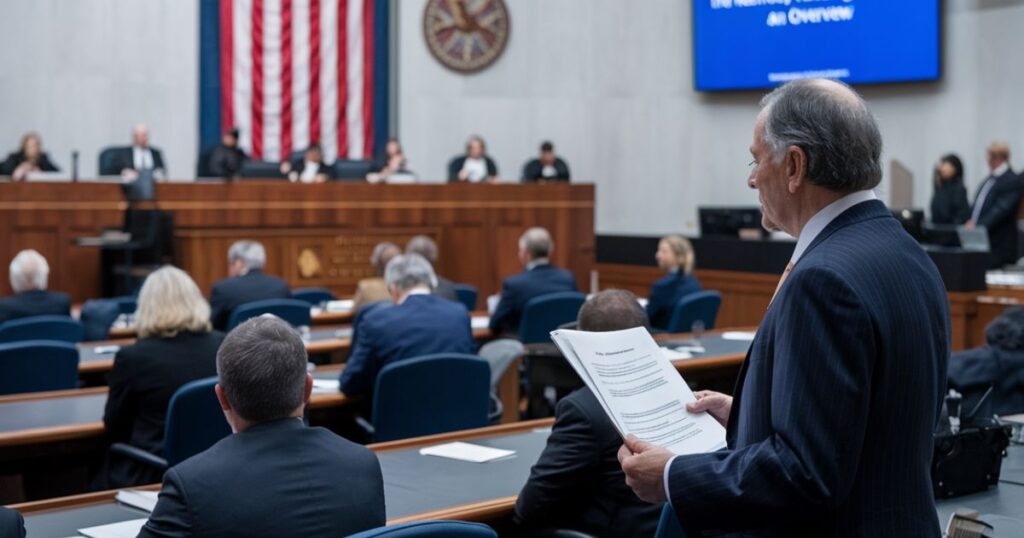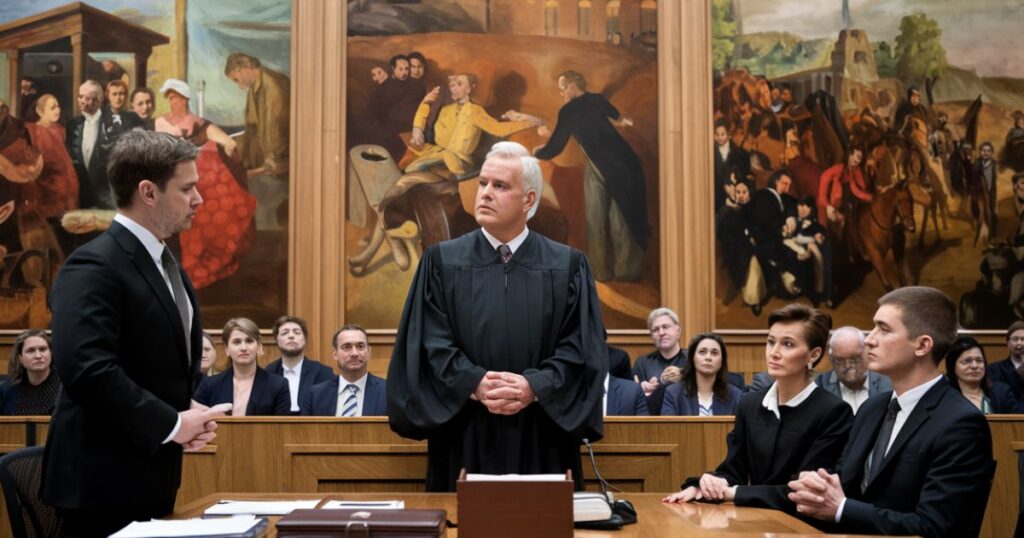In the complex world of commercial real estate lending, few cases have garnered as much attention as the Kennedy Funding lawsuit.
This landmark legal battle has reshaped how we think about lending practices, contractual obligations, and business ethics in the real estate sector.
Kennedy Funding: An Introduction
Kennedy Funding, Inc. (KFI) emerged as a powerhouse in commercial real estate lending, establishing partnerships with industry giants like Hubspot and Wordstream.
Based in New Jersey, KFI built its reputation on providing bridge loans and commercial lending solutions. However, their business practices have sometimes drawn scrutiny, particularly in cases involving complex financial arrangements and property transactions.
The Kennedy Funding lawsuit typically refers to legal actions brought against Kennedy Funding, a private lender specializing in “hard money” real estate loans, by borrowers who claim the company engaged in predatory lending practices, including charging excessively high fees, failing to disclose loan terms clearly, and using aggressive collection tactics, often leading to accusations of unjust enrichment when loans were not closed or funded despite borrowers paying upfront fees.
The Kennedy Funding Lawsuit: An Overview

The case that captured national attention centered on Virgil Shelton, the seller of Rest in Peace Cemetery in Hensley, Arkansas.
The lawsuit, filed in 2000, alleged breach of contract and fraud against KFI. The initial verdict awarded Shelton $1,675,000, though this amount would later be modified through appeals.
Key Details
At the heart of this case lay allegations of violations of the Securities Exchange Act and claims of property value misrepresentation. The lawsuit highlighted critical issues in commercial lending practices, including:
"The importance of transparency in lending cannot be overstated," noted one industry expert. "This case fundamentally changed how lenders approach property valuations and disclosures."
The Players
The principal figures in this legal drama included Virgil Shelton, the original cemetery owner who established the property in 1967, and Willie Acklin, a local undertaker who purchased the cemetery in 1992. KFI entered the picture when Acklin sought financial assistance through a bridge loan.
The Case Background
The story began in 1967 when Shelton established Rest in Peace Cemetery. After 25 years of operation, he sold the property to Acklin through a promissory note and mortgage arrangement. Financial difficulties in the late 1990s led Acklin to seek refinancing through KFI.
The Estoppel Certificate

The Estoppel Certificate played a pivotal role in this case. This legal document, designed to prevent contradictory claims, became the cornerstone of subsequent legal arguments. The certificate detailed specific obligations regarding the cemetery’s title and mortgage value.
Read This Post: The $60k Phenomenon: Reddit’s WallStreetBets, Market Surges, and Bloomberg’s Analysis
The Loan Commitment
The loan structure involved complex arrangements regarding:
- Property collateralization
- Mortgage priority rights
- Payment terms
- Default provisions
The Loan Default
In 2000, Acklin defaulted on the bridge loan, triggering a series of events that would lead to foreclosure proceedings and the eventual lawsuit. The default exposed underlying issues with the loan structure and raised questions about KFI’s lending practices.
The Legal Issues
The case brought forth multiple complex legal challenges centered around breach of contract and fraud allegations. The application of the Arkansas Statute of Frauds became a crucial element in determining the enforceability of agreements between the parties.
The legal proceedings highlighted significant questions about commercial lending practices and the responsibilities of lenders in property transactions.
The Verdict
After extensive deliberation, the jury delivered a landmark verdict awarding Virgil Shelton $1,675,000.
This decision sent shockwaves through the commercial lending industry, as it established new precedents for lender liability and reinforced the importance of transparent dealings in real estate transactions.
The Appeal

Kennedy Funding, Inc. vigorously contested the initial verdict, presenting several key arguments:
- The Estoppel Certificate‘s enforceability under the Arkansas Statute of Frauds
- Insufficient evidence supporting fraud claims
- Challenges to the damage calculation methodology
- Questions about contractual interpretation
The Outcome
The appeals court’s decision reshaped the case’s final resolution. While upholding certain aspects of the initial verdict, the court reduced the award to $675,000 and reversed the fraud claims. This modified judgment reflected a more nuanced interpretation of the evidence and legal principles at play.
Read This Post: “Unlocking the Power of Look WiFi Q1 Koziol: A Complete Guide”
Conclusion
The Kennedy Funding lawsuit stands as a watershed moment in commercial real estate lending. It underscores the critical importance of:
"Due diligence and transparent dealings aren't just good business practices – they're essential safeguards against legal liability," remarked a prominent real estate attorney familiar with the case.
The case continues to influence lending practices and legal strategies in the commercial real estate sector, serving as a cautionary tale about the importance of clear documentation and ethical business practices.
FAQ’s
Who is the plaintiff?
Virgil Shelton, the original owner of Rest in Peace Cemetery in Hensley, Arkansas, served as the plaintiff. His involvement in the cemetery’s operations from 1967 until its sale in 1992 provided crucial context for the legal proceedings.
Who is the defendant?
Kennedy Funding, Inc., based in New Jersey, acted as the defendant. As a commercial bridge loan lender, KFI’s lending practices and business operations came under intense scrutiny during the trial.
What was the verdict of the Kennedy Funding lawsuit?
The initial jury verdict awarded $1,675,000 to Shelton based on breach of contract and fraud claims. This verdict represented one of the largest awards in similar commercial lending cases in Arkansas.
Was there an appeal to the Kennedy Funding lawsuit?
Yes, KFI successfully appealed portions of the verdict. The appeals court modified the judgment to $675,000 and struck down the fraud claims while maintaining the breach of contract finding.
The case offers valuable lessons for lenders, borrowers, and legal practitioners in the commercial real estate sector. It emphasizes the importance of thorough documentation, clear communication, and ethical business practices in commercial lending operations.
This legal battle between Virgil Shelton and Kennedy Funding, Inc. continues to influence how commercial lenders approach similar transactions, particularly regarding transparency, due diligence, and the handling of complex financial arrangements involving multiple parties.
Industry professionals routinely reference this case when discussing best practices in commercial lending, making it a cornerstone example of the potential consequences of disputed lending practices and the importance of maintaining clear, enforceable agreements in real estate transactions.
The legacy of this case extends beyond its immediate participants, serving as a guidebook for future commercial lending operations and a reminder of the critical importance of ethical business practices in the financial sector.
Key Case Timeline
| Year | Event |
| 1967 | Virgil Shelton establishes Rest in Peace Cemetery |
| 1992 | Sale to Willie Acklin via promissory note and mortgage |
| Late 1990s | Acklin seeks bridge loan from Kennedy Funding, Inc. |
| 2000 | Loan default and initiation of legal proceedings |
| Post-2000 | Initial verdict and subsequent appeal |
| Final Outcome | Modified judgment of $675,000 |
This comprehensive examination of the Kennedy Funding lawsuit serves as both a historical record and a practical guide for understanding the complexities of commercial real estate lending and the potential consequences of disputed business practices.

